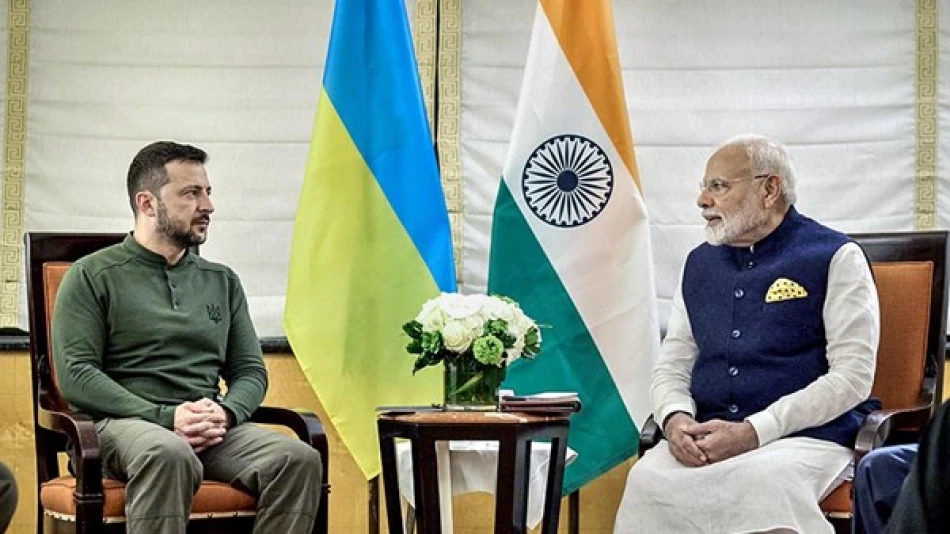
India Advocates for Peaceful Resolution to Ukraine Crisis
Modi Reaffirms India's Balancing Act as Ukraine Conflict Enters Critical Phase
Indian Prime Minister Narendra Modi reiterated his country's support for a peaceful resolution to the Ukraine crisis during a phone call with Ukrainian President Volodymyr Zelensky on Saturday, highlighting India's continued diplomatic balancing act between Western allies and traditional partner Russia. The conversation underscores New Delhi's strategy of maintaining relationships with all parties while positioning itself as a potential mediator in one of the world's most consequential conflicts.
Diplomatic Tightrope Walking
According to Modi's office, Zelensky briefed the Indian leader on recent developments in Ukraine, while Modi emphasized India's commitment to efforts aimed at restoring peace "as soon as possible." This carefully worded statement reflects India's consistent position since the conflict began—supporting Ukraine's sovereignty while avoiding direct criticism of Russia.
The timing of this call is significant. As the conflict approaches its second anniversary, international pressure is mounting for concrete diplomatic initiatives. India's role as a bridge between opposing camps becomes increasingly valuable as traditional Western-led mediation efforts show limited progress.
Strategic Implications for Global Markets
India's diplomatic positioning carries substantial economic weight. As the world's fifth-largest economy and fastest-growing major market, India's stance influences global commodity flows, particularly in energy markets. The country has become a major buyer of discounted Russian oil, helping Moscow circumvent Western sanctions while providing India with cheaper energy inputs.
This pragmatic approach has drawn criticism from some Western allies but demonstrates India's prioritization of domestic economic interests over geopolitical alignment—a strategy that resonates with many developing nations watching the conflict's global economic ripple effects.
Bilateral Relationship Beyond the Conflict
The leaders also discussed strengthening India-Ukraine bilateral cooperation across various sectors, suggesting that diplomatic engagement continues despite the ongoing war. This reflects a broader Indian strategy of separating immediate crisis management from long-term relationship building.
Ukraine's agricultural exports and India's technological capabilities present natural partnership opportunities, particularly in food security and digital infrastructure—areas where cooperation could yield mutual benefits regardless of the conflict's outcome.
India's Mediator Credentials
Unlike China, which faces Western suspicion over its Russia ties, or Middle Eastern nations with their own regional conflicts, India maintains credible relationships with both NATO countries and Russia. Modi's personal diplomacy with both Putin and Western leaders positions New Delhi as one of the few capitals capable of facilitating meaningful dialogue.
This latest conversation with Zelensky reinforces India's availability as a mediator while avoiding the appearance of taking sides. As international attention increasingly focuses on potential peace negotiations, India's role as an honest broker may prove crucial in any future settlement discussions.
Most Viewed News

 Layla Al Mansoori
Layla Al Mansoori






